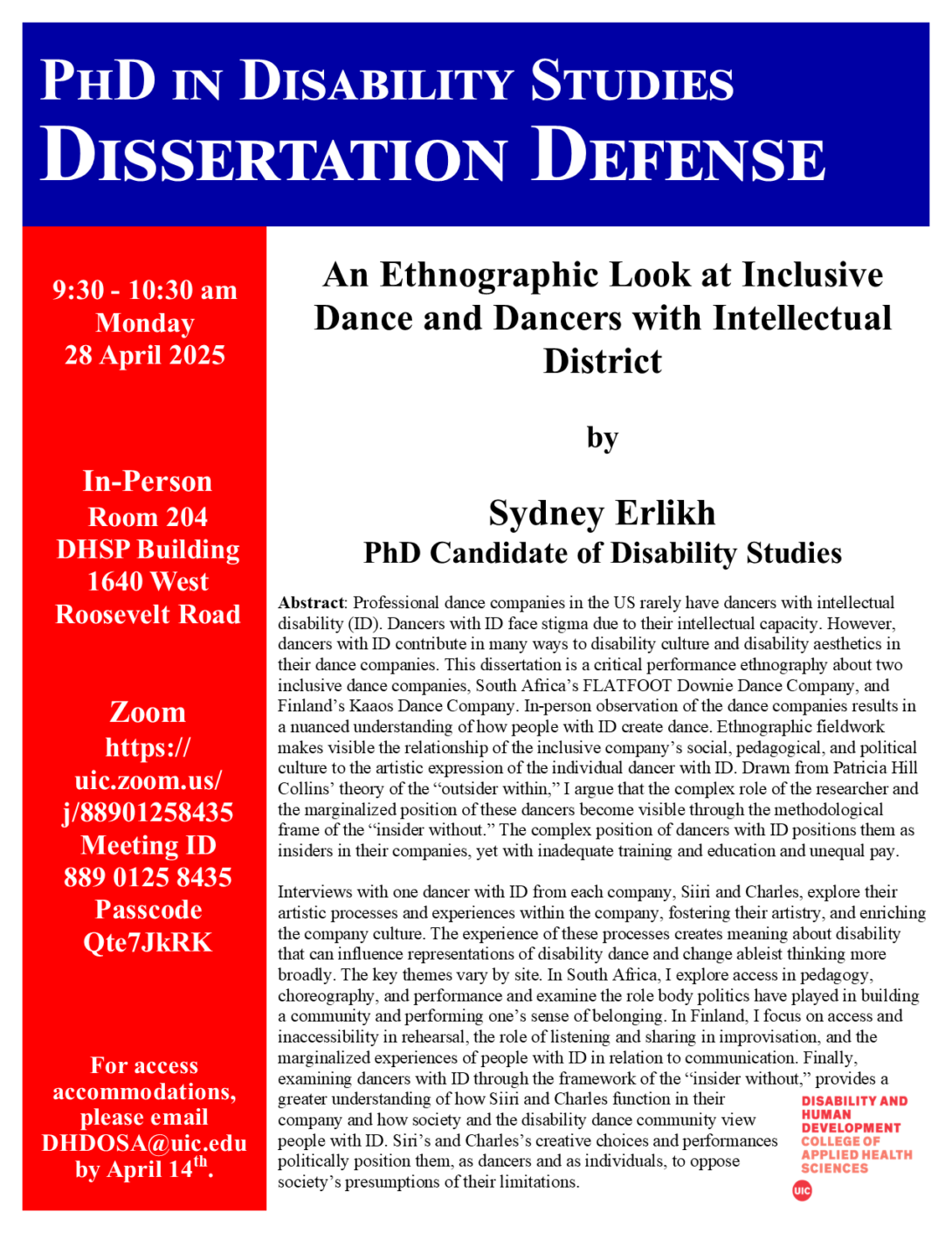An Ethnographic Look at Inclusive Dance and Dancers with Intellectual Disabilities by Sydney Erlikh
PhD in Disability Studies Dissertation Defense
April 28, 2025
9:30 AM - 10:30 AM

Abstract
Professional dance companies in the US rarely have dancers with intellectual disability (ID). Dancers with ID face stigma due to their intellectual capacity. However, dancers with ID contribute in many ways to disability culture and disability aesthetics in their dance companies. This dissertation is a critical performance ethnography about two inclusive dance companies, South Africa’s FLATFOOT Downie Dance Company, and Finland’s Kaaos Dance Company. In-person observation of the dance companies results in a nuanced understanding of how people with ID create dance. Ethnographic fieldwork makes visible the relationship of the inclusive company’s social, pedagogical, and political culture to the artistic expression of the individual dancer with ID. Drawn from Patricia Hill Collins’ theory of the “outsider within,” I argue that the complex role of the researcher and the marginalized position of these dancers become visible through the methodological frame of the “insider without.” The complex position of dancers with ID positions them as insiders in their companies, yet with inadequate training and education and unequal pay.
Interviews with one dancer with ID from each company, Siiri and Charles, explore their artistic processes and experiences within the company, fostering their artistry, and enriching the company culture. The experience of these processes creates meaning about disability that can influence representations of disability dance and change ableist thinking more broadly. The key themes vary by site. In South Africa, I explore access in pedagogy, choreography, and performance and examine the role body politics have played in building a community and performing one’s sense of belonging. In Finland, I focus on access and inaccessibility in rehearsal, the role of listening and sharing in improvisation, and the marginalized experiences of people with ID in relation to communication. Finally, examining dancers with ID through the framework of the “insider without,” provides a greater understanding of how Siiri and Charles function in their company and how society and the disability dance community view people with ID. Siri’s and Charles’s creative choices and performances politically position them, as dancers and as individuals, to oppose society’s presumptions of their limitations.
Zoom Info
https://uic.zoom.us/j/88901258435?pwd=g2bRy13Tvl96BqlKOPzoT5LkYENu06.1
Meeting ID: 889 0125 8435
Passcode: Qte7JkRK
One tap mobile
+13126266799,,88901258435#,,,,*65626511# US (Chicago)
+13092053325,,88901258435#,,,,*65626511# US
For access accommodations, please email DHDOSA@uic.edu by noon, Monday, April 14th.
Date posted
Mar 31, 2025
Date updated
Jul 22, 2025